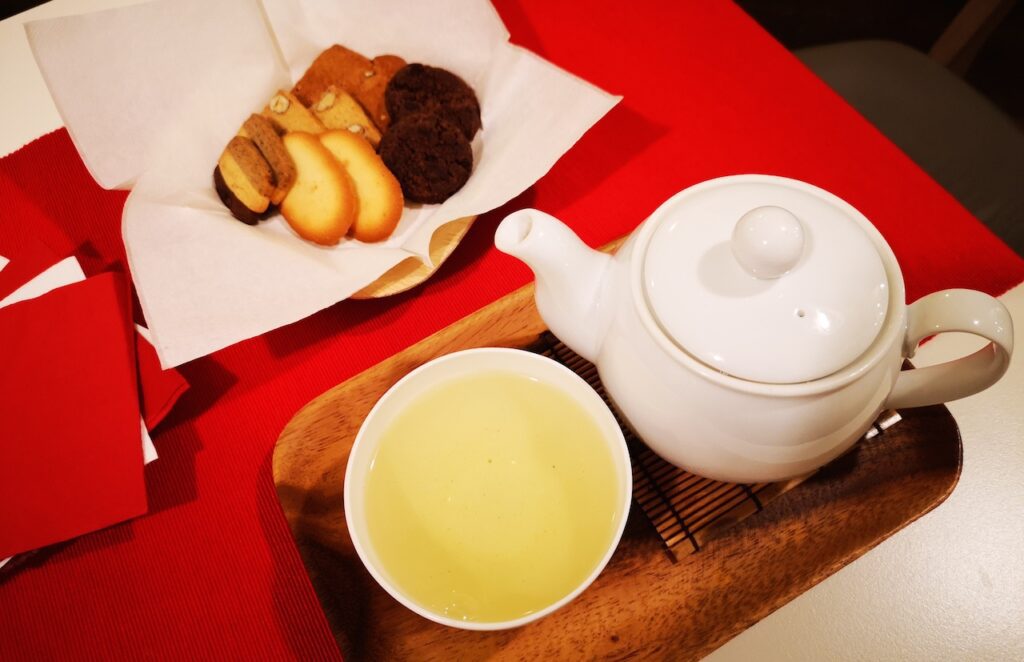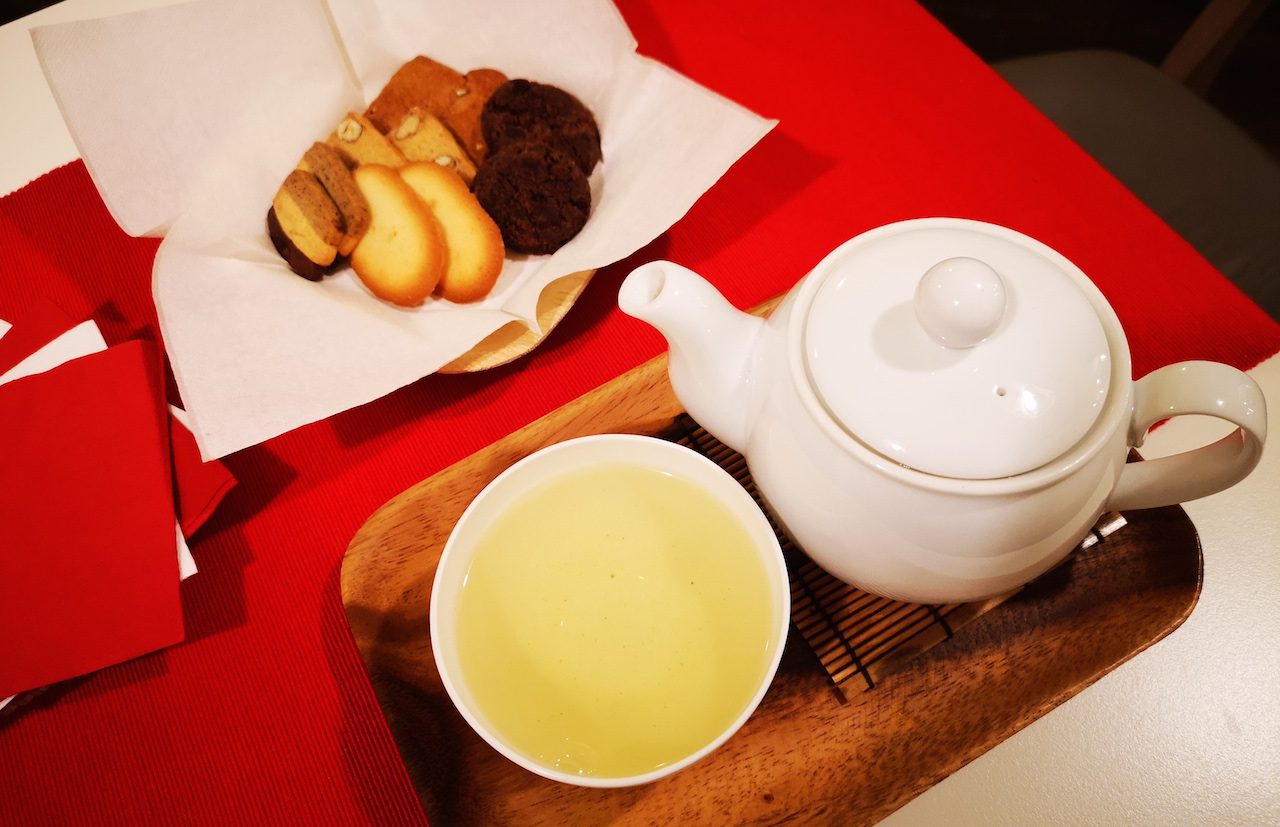Il Bancha è un tè verde giapponese che viene effettuato con le foglie più larghe del raccolto estivo. Questa tipologia ha un basso contenuto di teina ed è adatto anche a bambini e anziani e può essere accompagnato ai pasti principali. Il tè più pregiato viene prodotto nella prefettura di Shizuoka.
La lavorazione comprende il passaggio a vapore delle foglie per impedirne l’ossidazione.
Ho assaggiato per la prima volta questo Bancha presso Mondo di Eutepia dove potete trovare un’alta selezione di tè di alta qualità.
SCHEDA DI DEGUSTAZIONE
Tipologia: tè verde giapponese.
Provenienza: Shizuoka, Giappone.
Proprietà: a basso contenuto di teina.
Foglie a secco: lunghe ed omogenee, color verde giada intenso e brillante.
Foglie dopo infusione: foglie tenere ed ampie.
Aroma: fresco con note marine e algate.
Colore del liquore: limpido, dal verde al giallo.
Gusto: dolce ed erbaceo con note fruttate.
Preparazione: 2 minuti in infusione a 80 gradi, 3 grammi di foglie ogni 200 ml di acqua PH 6.8. Se si utilizza una teiera kyusu a più infusioni ridurre a un minuto e mezzo.
Teiera ideale: kyusu giapponese.
Abbinamenti: con tutti i cibi a pranzo o a cena soprattutto con riso, pasta, pesce, formaggi e verdure.
Aggiunte: nessuna.
Bancha Tasting

Bancha is a Japanese green tea that is made with the broadest leaves of the summer harvest. This type has a low theine content and is also suitable for children and the elderly and can be accompanied with main meals. This finest tea is produced in Shizuoka prefecture.
Processing includes steaming the leaves to prevent oxidation.
I tasted this Bancha for the first time at Mondo di Eutepia where you can find a large selection of high quality teas.
TASTING CARD
Type: Japanese green tea.
Origin: Shizuoka, Japan.
Properties: low theine content.
Dry leaves: long and homogeneous, intense and brilliant jade green color.
Leaves after infusion: tender and broad leaves.
Aroma: fresh with marine and seaweed notes.
Color of the liqueur: clear, green-yellow.
Taste: sweet, fruity and herbaceous.
Preparation: 2 minutes infusion at 80 degrees, 3 grams of tea leaves every 200 ml of water PH 6.8. If using a multi-infused kyusu teapot, reduce to one and a half minutes.
Ideal teapot: Japanese kyusu.
Pairings: with all foods for lunch or dinner, especially with rice, pasta, fish, cheeses and vegetables.
Additions: none.

Degustazione Bancha abbinato a biscotti – Photo@Veru



No responses yet